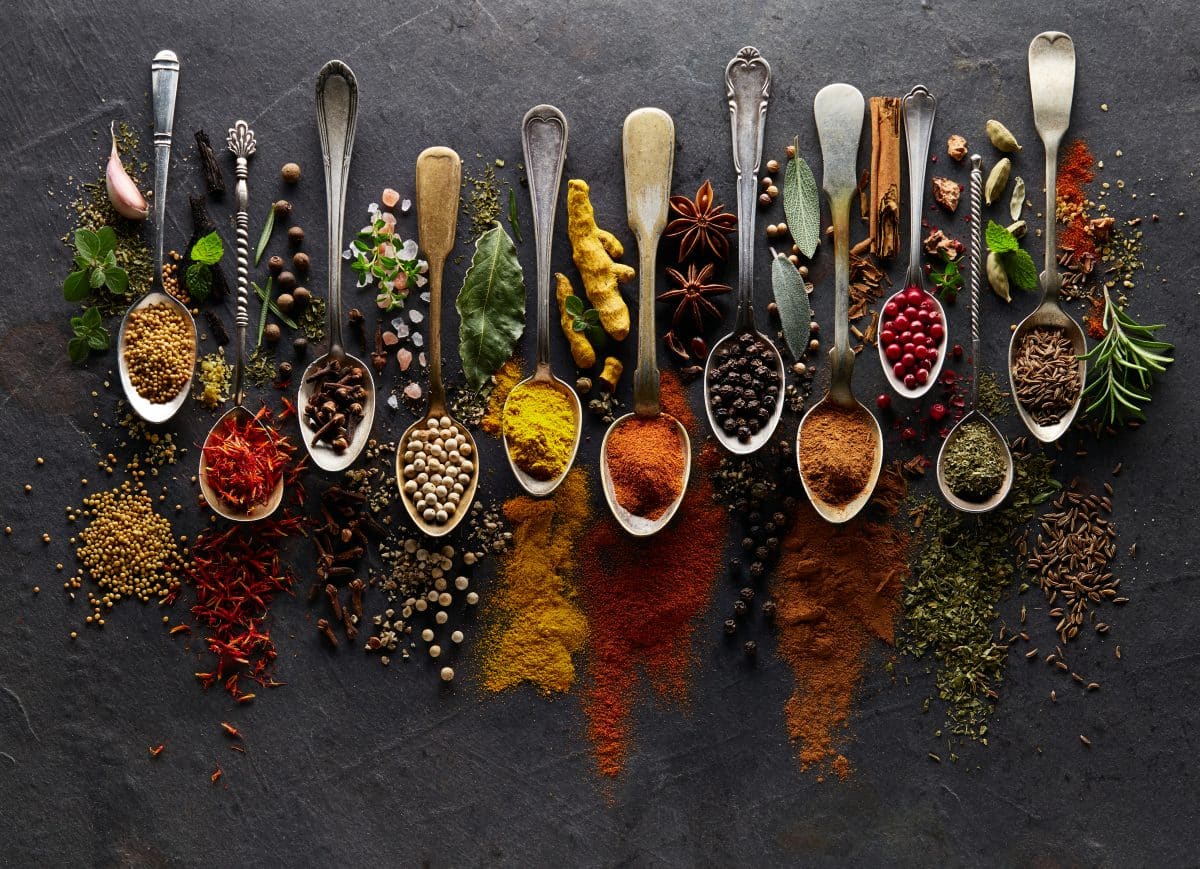Low FODMAP herbs
- Low FODMAP diet
Following a low FODMAP diet can seem bland when you can’t use onion or garlic anymore, but there are many low FODMAP herbs for tasty alternatives!
This blog post will explain how you can use herbs to add flavours to your dishes whilst following a low FODMAP diet.

LOW FODMAP HERBS
You can find which herbs are low FODMAP friendly in the ‘condiments’ section on the Monash university FODMAP diet app (1).
Below are some herbs that are low FODMAP. Remember to check the app for specific serving sizes as some may be high in FODMAPs at larger servings (1).
- Thyme
- Rosemary
- Sage
- Dill
- Parsley
- Basil
- Bay leaves
- Oregano
- Mint
- Kaffir lime leaves
There are many low FODMAP herb options from different cuisines that you can enjoy!
Don’t forget you can still use the trusty salt (in moderation!) and pepper to add simple flavour to dishes.
LOW FODMAP HERB MIXES
You can have some herb mixes on the low FODMAP diet.
Shop bought herbs are usually low FODMAP, although it is worth checking the label when you buy herb mixes.
‘Italian’ seasoning often contains garlic and onion powder but you can also get creative by making your own at home! Click here for a low FODMAP italian seasoning recipe.
STORING DRIED LOW FODMAP HERBS
Whilst herbs are dried and therefore last longer than fresh herbs (basil, dill and parsley), they won’t last forever.
Store herbs in an airtight container to preserve for as long as possible and store them out of direct sunlight.
ARE HERBS BENEFICIAL FOR GUT HEALTH?
Herbs contain a range of bioactive molecules such as polyphenols that are antioxidants and have anti-inflammatory effects that interact with gut bacteria (2).
Dried herbs contain a higher polyphenol content (2). This is good news when we look to herbs to add flavour to our dishes, dried herbs are cheaper and last longer,
Some herbs have been proven for medicinal purposes such as peppermint oil capsules in the relief of IBS related pain and ginger has been proven as effective for preventing nausea in pregnancy (3).
Despite this, the use of herbs can not provide solutions or replace traditional medicine.
CAN YOU STILL USE ONION IN YOUR COOKING?
Short answer: yes!
Whilst onions are high FODMAP food, you can still use them to add flavour to your cooking but you must remove the onion before you serve (4).
Onion is a fructan and fructans are water-soluble, so consuming any cooking water may result in high fructan consumption.
In oil-based cooking such as a stir fry, you can add onion in chunks to help infuse the flavour without leaching any FODMAPs into the meal. But remember to remove the onion pieces before serving.
You can read more about eating onions on the low FODMAP diet here.
SUMMARY
Overall, there are many herbs that can be used on the low FODMAP diet.
You can try new herbs to test out different flavours. You can even grow your own fresh herbs to ensure you always have access to quick and easy flavour.
No more missing out on flavour whilst on the low FODMAP diet and herbs can also be beneficial for your overall gut health!
Written by Camilla Donaldson BSc Hons Nutrition, reviewed by Serena Bansal Registered Dietitian BSc Hons and Kirsten Jackson Consultant Dietitian BSc Hons, RD, PG Cert